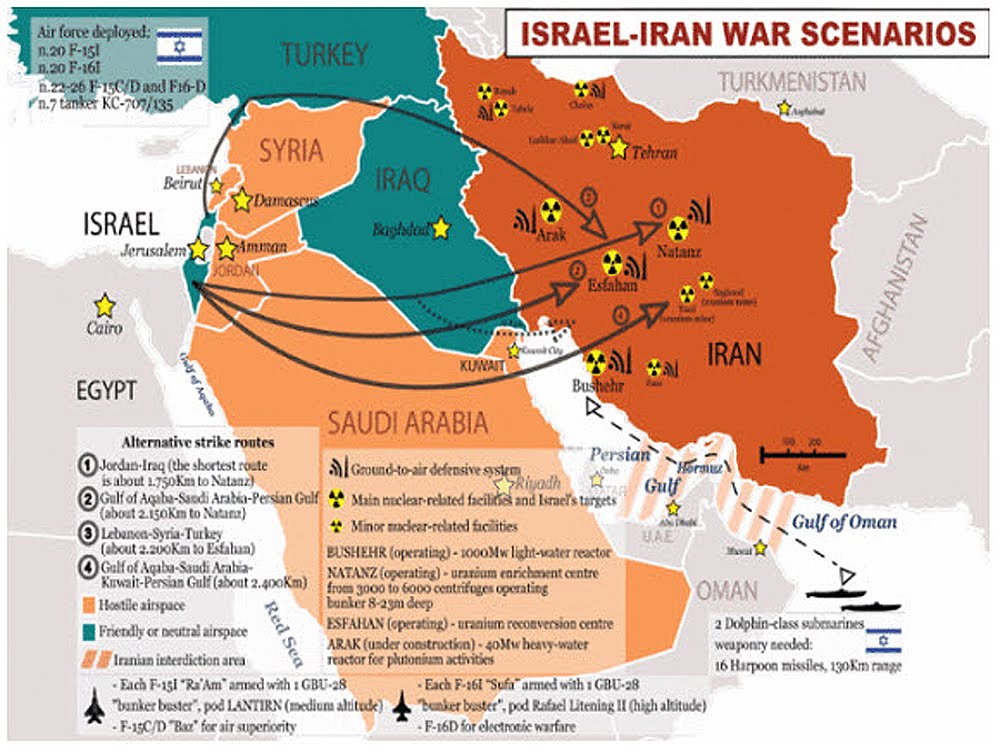
Main Players and Their Positions
All members of the Security Council are interested in solving this problem. But there are different interests and approaches among the UN members.
Israel is sure that tough measures and harsh sanctions were not efficient and it had to use military operations to stop Iran. The USA supports the ally and finds the Israeli actions justifiable. Americans are not interested in involving into a serious conflict because of difficult economic situation inside their own country but at the same time as a great power cannot ignore the situation and do not help Israel. From the US point of view it is necessary to show other states all over the world that nobody could develop nuclear weapons and break the international law without punishment. Moving to “Global Zero” the United States seek to make other countries refuse to develop nuclear weapons. The worst scenario for the US is the “domino effect” when states would probably follow the example of Iran.
Russia and China are against the military operations and insist on diplomatic means. They blame the USA and Israel for escalation of conflict and unnecessary violence towards Iran, first of all, its civilian population. Russia and China demand Israel to stop attacks and return to six-party talk. They are sure that Iran will be ready to negotiate and co-operate in exchange for the end of sanctions. The main goal is to find compromise and discuss the issues in the diplomatic framework.
France and Great Britain can be mediators between opponents. First, they are not interested in escalating conflict. Second, in contrast to Russia and China they do not have insuperable contradictions with the USA. Finally, from their point of view both Israel and Iran are responsible for this conflict because Teheran ignores the requirements from the UN and continues its ambiguous nuclear activity while Israel breaks the international law attacking Iran without the UN SC resolution.
As it is mentioned above Turkey, Syria and Palestine support Iran, first of all in its right to conduct independent politics.
As for Teheran nuclear status would allow Iran to become the largest and most influential country in the Middle East, the leader of Shiite world which will be able to resist the West. It is unlikely scenario for Iran to take some steps back. First, Iran invested a huge amount of money in developing nuclear industry. Second, it is the matter of national independence. Iranian politicians and spiritual leaders demonstrate to their population and other countries of the Third World that it is possible to conduct an independent policy despite Washington’s reaction.
Although it seems there is little possibility to break this vicious circle the international community has no choice but to find solution as soon as possible.
Conclusion
To sum it up the international community faces an extraordinary situation which could have unpredictable consequences. So it is necessary to immediately cease fire and prevent other countries from engaging in the conflict.
The United Nations should overcome the diversity of interests among its members and focus on resolving the problem. We should do our best to avoid worst scenarios associated with nuclear attacks or a full-scale war. The Security Council prefers diplomatic means but it has to act in restricted conditions.
There is a little space for maneuver but it is the time to undertake all the possible efforts to stabilize the situation in the Middle East. It is important to keep in mind that Israel has not signed the NPT. Iran, in contrast, signed the Treaty but recently has broken its obligations thus agrees to periodic inspections and did not joined the Additional Protocol.
The main questions under consideration:
- First, which country is responsible for the start of the conflict?
-Second, how to cease fire as soon as possible?
-Third, how to prevent the conflict from extension, and seek compromise not only between Israel and Iran, but among other regional and international actors and organizations?

http://russiandefenseleague.wordpress.com/2011/12/26/33712262011/
Links for further research
- James Martin Center for Nonproliferation Studies, Iran Special Collection (a huge collection of materials, documents, publications): http://cns.miis.edu/iran/index.htm
-Nuclear Treat Initiative, Iran Profile: http://www.nti.org/country-profiles/iran/
-Iran Special Weapons News: http://www.globalsecurity.org/wmd/library/news/iran/index.html
-Special CNN reports on Iran: http://topics.edition.cnn.com/topics/iran
-Institute for Science and International Security: http://isisnucleariran.org/
-Центр политических исследований России, ПИР-Центр. Иран и Россия: http://www.pircenter.org/projects/11-iranian-nuclear-program-russia-s-interests
-BBC News on Iran: http://www.bbc.co.uk/search/news/nuclear_program_of_iran
-The New York Times. Iran's Nuclear Program http://topics.nytimes.com/top/news/international/countriesandterritories/iran/nuclear_program/index.html
1 Iran’s Nuclear Program: Tehran’s Compliance with International Obligations // http://www.fas.org/sgp/crs/nuke/R40094.pdf
2 Ibid.
3 Ibid.
4 Smith J. When Iran and Israel were friendly // http://www.salon.com/2012/02/15/when_iran_and_israel_were_friendly/
5 Pexton P. B. What about Israel’s nuclear weapons? //
http://articles.washingtonpost.com/2012-08-31/opinions/35492379_1_nuclear-weapons-avner-cohen-nuclear-program
6 Nuclear Profile. Iran // http://www.nti.org/country-profiles/iran/nuclear/
7 Pexton P. B. Op. sit.
8 What about Israel’s nuclear weapons? //
http://articles.washingtonpost.com/2012-08-31/opinions/35492379_1_nuclear-weapons-avner-cohen-nuclear-program
9 Nuclear Profile. Iran // http://www.nti.org/country-profiles/iran/nuclear/
10 Iran's Nuclear Program // www.iranwatch.org/wmd/wmd-nuclearessay-footnotes.htm
11 Timeline: Iranian nuclear disputehttp://www.reuters.com/article/2012/06/17/us-iran-nuclear-talks-events-idUSBRE85G0QD20120617
12 Implementation of the NPT Safeguards Agreement in the Islamic Republic of Iran //www.iaea.org/Publications/Documents/Board/2005/gov2005-77.pdf
13Implementation of the NPT Safeguards Agreement in the Islamic Republic of Iran
Resolution adopted on 4 February 2006 // www.iaea.org/Publications/Documents/Board/2006/gov2006-14.pdf
14 Davenport K. UN Security Council Resolutions on Iran //www.armscontrol.org/factsheets/Security-Council-Resolutions-on-Iran
15 Resolution 1696 // www.un.org/News/Press/docs/2006/sc8792.doc
16 Resolution 1737 //www.un.org/News/Press/docs/2006/sc8928.doc.htm
17UN SC Resolution 1747 //www.iaea.org/newscenter/focus/iaeairan/unsc_res1747-2007.pdf
18 Davenport K. UN Security Council Resolutions on Iran //www.armscontrol.org/factsheets/Security-Council-Resolutions-on-Iran
19 UN SC Resolution 1835 //www.iaea.org/newscenter/focus/iaeairan/unsc_res1835-2008.pdf
20UN SC Resolution 1929 //www.iaea.org/newscenter/focus/iaeairan/unsc_res1929-2010.pdf
21 Ibid.
22 Davenport K. Op.sit.
23 NPT // http://www.fas.org/nuke/control/npt/text/npt2.htm
24 UN SC Resolution 487 //www.yale.edu/lawweb/avalon/un/un487.htm
25 Skepticism Abounds as Six World Powers Resume Nuclear Talks With Iran // http://www.nytimes.com/2013/02/26/world/middleeast/skepticism-surrounds-resumption-of-nuclear-talks-with-iran.html?ref=nuclearprogram&_r=0
26 Congress Gets in the Way // http://www.nytimes.com/2013/03/09/opinion/congress-gets-in-the-way-on-iran.html?ref=nuclearprogram
27 Ibid.
